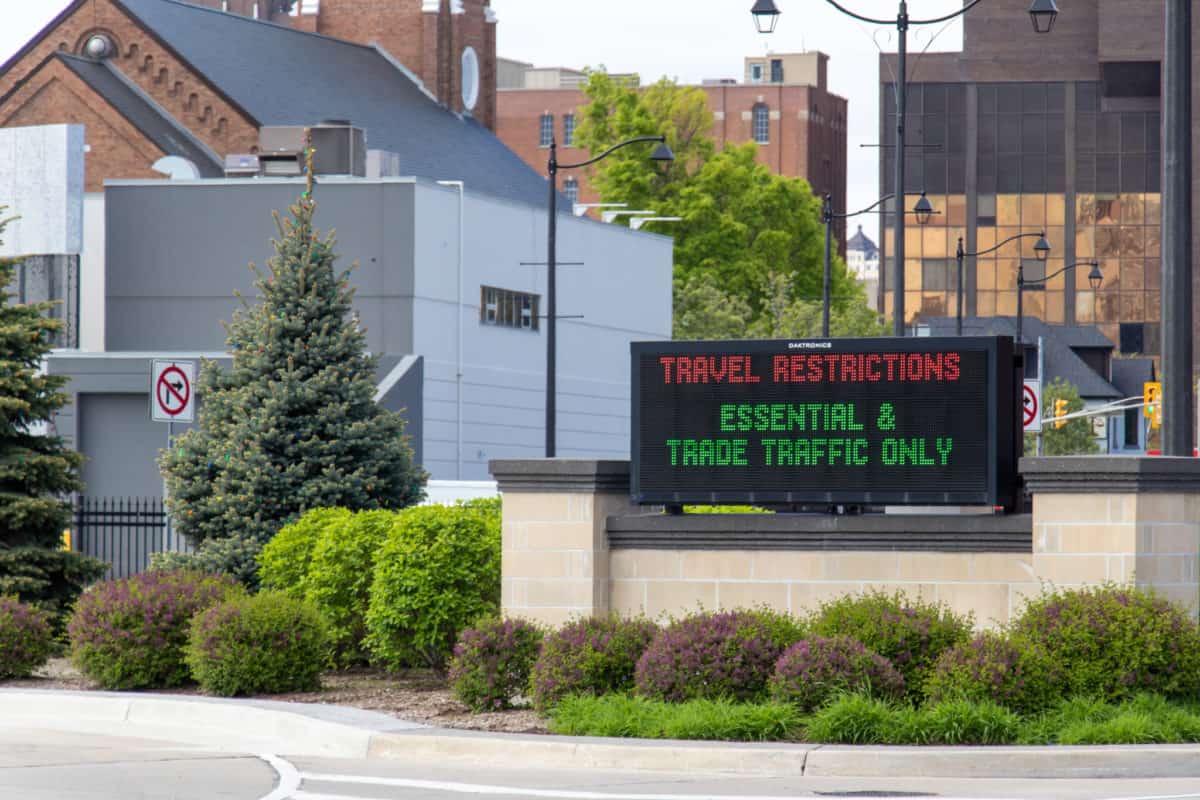Canada has extended both international travel restrictions and the closure of the border with the U.S. for another month, until May 21, 2021.
The extensions were announced in two separate tweets on Tuesday morning from Bill Blair, Minister of Public Safety and Emergency Preparedness.
“As cases rise and variants of concern continue to emerge across the country, we will continue to do what it takes – for as long as it takes – to keep Canadians safe,” Blair tweeted. “Restrictions on non-US international travel into Canada have been extended until May 21st, 2021.”
In extending the restrictions on travel from the U.S., Blair added: “We will continue to base our decisions on the best public health advice available to keep Canadians safe from COVID-19.”
The extension means both international and U.S. restrictions have been in place for 14 months after first being imposed in March 2020.
Read More
COVID-19: Ottawa Hopes to Broaden List of Essential Travellers Allowed to Come to Canada
Canada’s Unemployment Rate Of 7.5% Lowest Since Before COVID-19 Struck
Canada Extends COVID-19 Policy Allowing Visitors To Apply For Work Permits Without Leaving
Travellers At Land Borders Need Proof of Negative COVID-19 Test
Canada requires that anyone returning to the country quarantine for 14 days.
Travellers arriving to Canada by land from the U.S. also need to provide proof of a negative COVID-19 molecular test result taken within 72 hours or a positive test taken 14 to 90 days prior to arrival.
In addition, travellers entering Canada at the land border require to take a COVID-19 molecular test on arrival as well as toward the end of their 14-day quarantine.
All travellers arriving to Canada by air, with some exceptions, need to take a COVID-19 molecular test when they arrive in Canada and another towards the end of their 14-day quarantine period. They also need to stay in a government-designated hotel for three days at their own cost to await the results of those tests.
Anyone arriving by air from another country for non-essential travel is also required to have gotten a negative COVID-19 test prior to boarding the aircraft in their home country.
Exemptions for Non-Discretionary Travel
Canada has exemptions in place for the following people, provided they are travelling for a non-discretionary reason:
- Seasonal agricultural workers, fish/seafood workers, caregivers and all other temporary foreign workers;
- International students who held a valid study permit, or had been approved for a study permit, when the travel restrictions took effect on March 18, 2020. More international students are now allowed to travel from October 20 last year under a new exemption;
- Permanent resident applicants who had been approved for permanent residence before the travel restrictions were announced but who had not yet travelled to Canada;
- Immediate family members of Canadian citizens and permanent residents are also exempt if entering to be with an immediate family member for at least 15 days, and;
- Extended family members of citizens and permanent residents, plus foreign nationals travelling on compassionate grounds.
Immigration Numbers Recovery At Start Of 2021
Canada welcomed 23,375 new immigrants in February, the second-highest monthly total since COVID-19 travel restrictions were put in place.
The latest federal government figures show 48,025 newcomers were welcomed in the first two months of the year, slightly below the total for the same period of 2020, but significantly higher than any other two-month period during coronavirus restrictions.
However, with Canada welcoming roughly 24,000 new immigrants per month during 2021, it will have to significantly step up the numbers later in the year to meet its annual target of 401,000 newcomers.

If the current rate was maintained throughout the year, Canada would welcome in the region of 288,000 new immigrants in 2021.
The major positive is that January and February are the first time Canada has welcomed more than 20,000 new permanent residents in a month since March 2020.
With significant moves such as issuing 27,332 Invitations to Apply in a single Express Entry draw on February 13, Canada has shown it is up to the challenge of meetings its ambitious targets.
Canada’s strategy is to invite candidates already in the country on a temporary basis.



